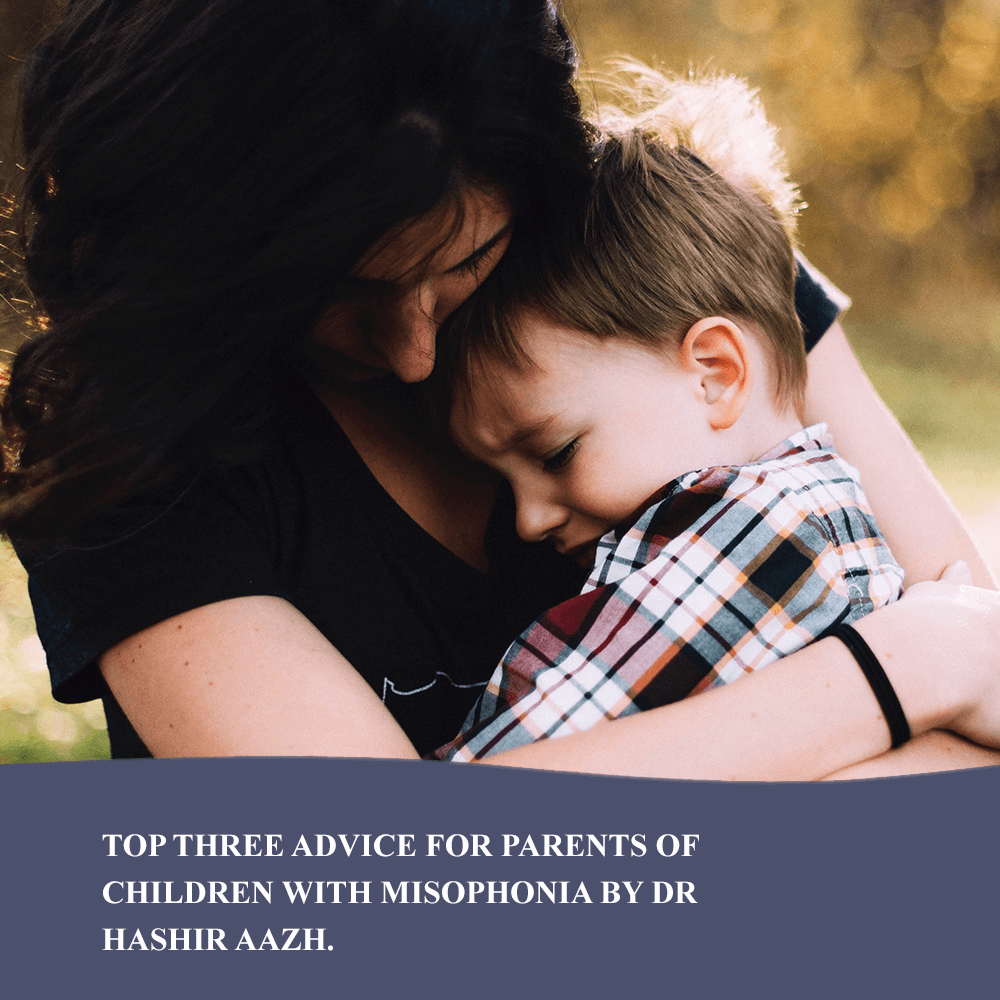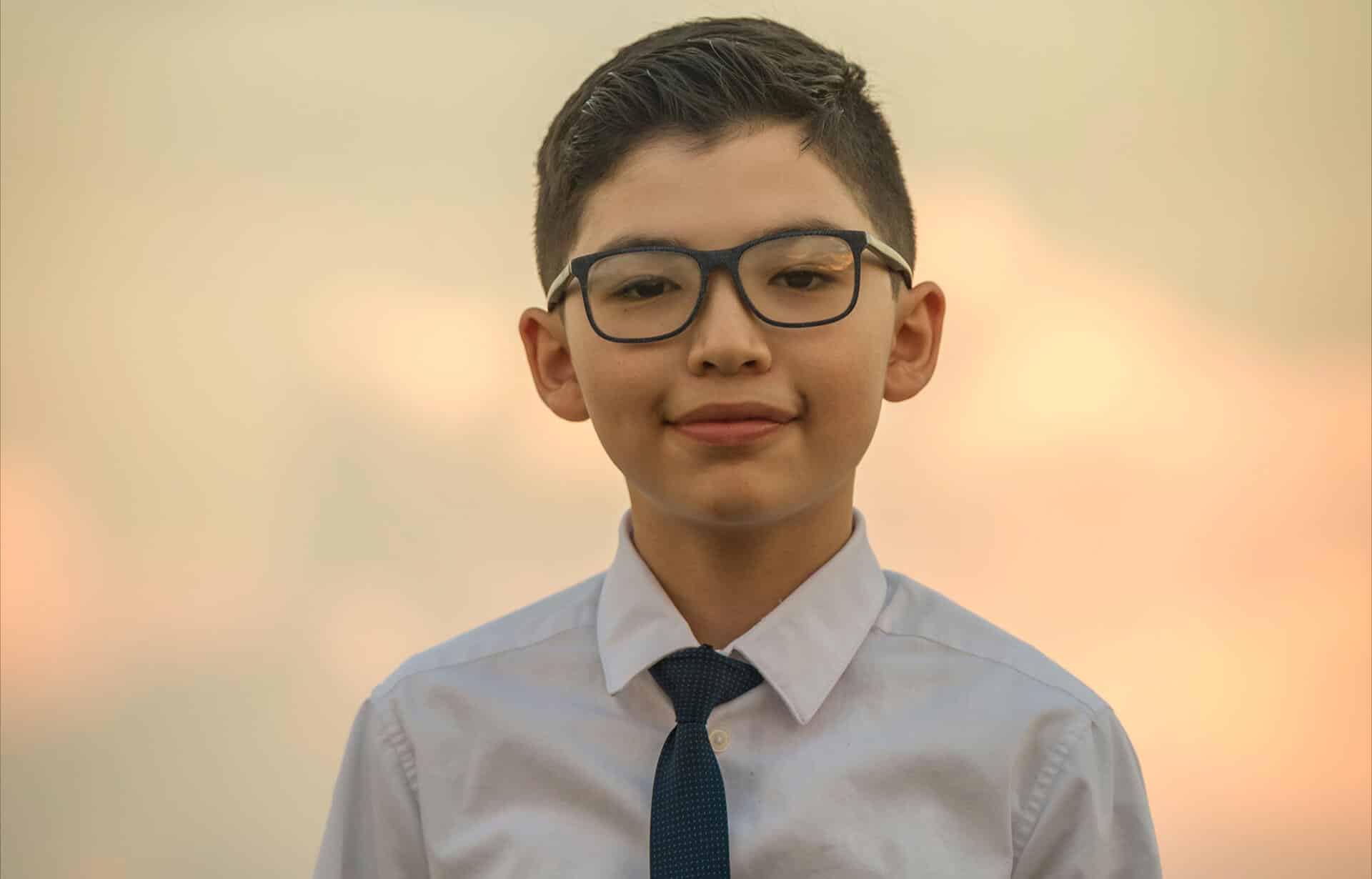
Dr. Hashir Aazh BSc, MSc, PhD (Audiologist, Specialist in Tinnitus, Hyperacusis & Misophonia Rehabilitation)
Misophonia is characterised by strong irritation, annoyance, anger, disgust or dislike toward certain sounds related to chewing, slurping, lip smacking, breathing, muffled speech or music from other rooms and tapping or the anticipation of these sounds. Misophonia is common among children as young as 7 years old. It is also common in teenagers and adults. A recent study in the UK suggested that 49% of medical students who completed an online survey had misophonia as measured via Amsterdam Misophonia Scale (A-MISO-S). To learn more about this study click here. Misophonia in children can be mistakenly interpreted as misbehaving or having a tantrum. It is not uncommon for the child with misophonia to feel very distressed at the dinner table and keep asking siblings to not to make mouth noises and that the noises they make are disgusting. They also may criticize the way that parents swallow or even breathe. Sometimes they avoid coming to the dinner table or if they do they may exhibit some rituals in the form of mimicry, making louder noises themselves as distraction or ask the person who made the noise to say it “correctly” or to apologise for making the noise. If your child has symptoms of misophonia then you need to see a doctor for advice. It is important to explore psychological and neurological aspects of the problem. In the meantime, here is a list of three ideas that you might find beneficial in supporting your child:

Children often rely on their parents or other caregivers for their needs. They feel that their parents can help and protect them with almost anything! But with misophonia the story can change. This is something that parents may not know much about. This can get worse if the trigger noises are actually produced by the parents or if the child with misophonia gets told off for misbehaving at the dinner table or at other places with parents or siblings. In such situations, although the child is feeling very distressed, irritated, or even feeling trapped, they won’t be able to get the support they need from their parents or at least they may be feeling that way. So as parents, it is important to talk to your child and reassure them that you understand their problem and that there are solutions for it and you can take them to a doctor that help them. This will make them feel more supported and safe as they will realise that you will do what you can to help. It also is a good idea to tell your child that you love them, no matter what.

Experience of strong emotional reaction to the trigger sounds, or at least parts of it, is related to the negative and irrational thoughts that goes through the mind of the child with misophonia. Examples of these are: “I will feel angry when I see my sibling is about to eat”, “I will get more angry and cannot control myself”, “I will get no enjoyment from eating my food”, “This is unfair”, “There is no escape and I am trapped”, “I will shout and scream at others or say things that make them annoyed”, “My parents will be mad at me”, “I will be told off”, “They shouldn’t make these noises”, “The noises they make are disgusting and wrong”, “They are so ignorant”, “I never can cope with these”, “I must avoid or stop them to make the noise otherwise I cannot get these out of my head”… Most of these thoughts have certain errors of judgment. You can help your child to learn about the common errors of judgment in our thoughts and see if they can identify any of these in their own thoughts which come to their mind when they hear the trigger sounds. Click here for a tool that you can use for education purpose. This can help them to change the way that they think about the trigger noises which will lead to reducing their misophonia reaction. It is important to praise them whenever they can identify and change their thoughts and not reacting negatively at the dinner table or at any other scenario. Positive reinforcement is critical in misophonia management.

Children with misophonia often exhibit some avoidance behaviours such as eating on their own as opposed to eating with the family, avoid going to places or be around family members that they anticipate to make the trigger noises, turning up the volume of radio or television so loud to mask the eating noises etc. When avoidance is not possible or is impractical then they may resort to mini-rituals in order to alleviate their stress. Mini-rituals are non-repetitive acts the person performs in response to anxiety. For example, in childhood misophonia, rituals often comprise mimicry, asking people to not to make noise knowing that it won’t be possible, eating as fast as they can without looking at anyone else, or avoid making eye contacts with others etc. Although your child may believe that this is the only way that they can cope with the noises, avoidance behaviours and rituals are not helpful in long-term as they do not address the source of the problem. As a parent you can help your child to understand that such behaviours may not be useful for them in long-term and help them to explore possible ways of minimising them.
Always remember to see a doctor who can assess and offer advice as fully addressing misophonia requires specialist help.
To See Dr. Hashir Aazh in London, Guildford, and Therapy from Distance (via Skype)